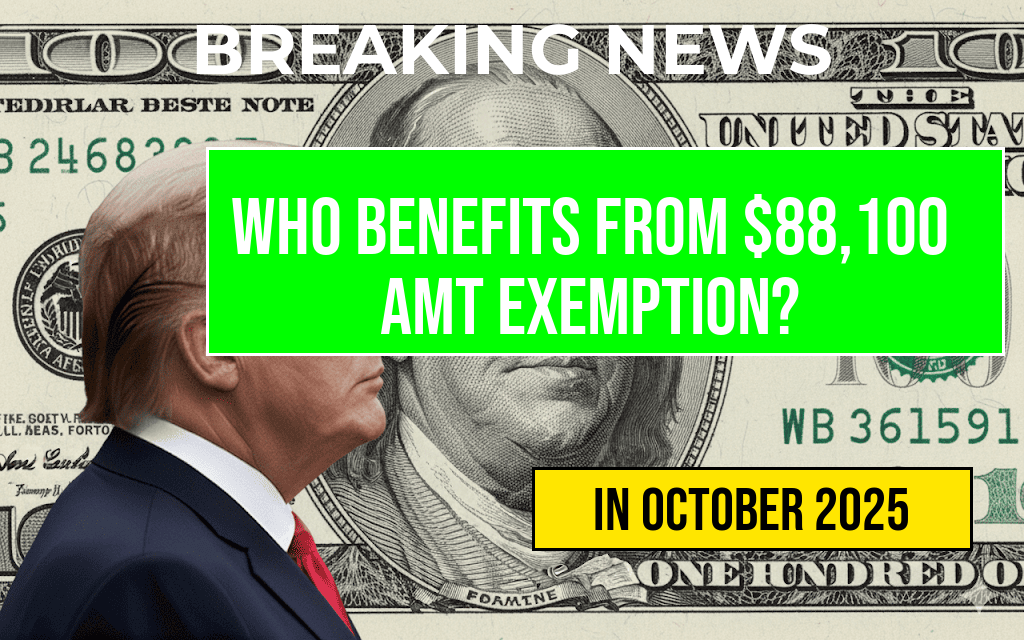The federal estate tax exemption for 2024 has increased to $88,100 for individual filers, a notable adjustment from prior years. This exemption determines the threshold at which an estate must be subject to federal estate taxes upon the death of an individual. While many Americans may never encounter estate taxes due to the high exemption amounts, understanding who will be impacted by this change is essential for estate planning and financial strategy. The new exemption level primarily affects high-net-worth individuals, but it also influences the estate planning decisions of many middle-income families. This article explores the demographics most likely to be affected by the $88,100 exemption, the implications for estate planning, and how this adjustment aligns with inflation and legislative trends.
Understanding the Federal Estate Tax Threshold
What is the Estate Tax Exemption?
The estate tax exemption is the amount an individual can leave to heirs without incurring federal estate taxes. Any estate exceeding this exemption may be taxed at rates up to 40%. The exemption amount is adjusted annually for inflation, with the 2024 figure set at $88,100. This exemption applies to the combined value of assets transferred upon death, including real estate, investments, and personal property.
Why the Increase Matters
The increase to $88,100 reflects ongoing adjustments for inflation but remains relatively modest compared to prior years. For context, the exemption was $12.92 million in 2023, meaning the vast majority of Americans do not face federal estate taxes. However, for estates approaching this new threshold, even minor increases can influence estate planning strategies. Additionally, some states impose their own estate or inheritance taxes with much lower thresholds, compounding the impact for certain families.
Who Will Be Most Affected by the New Exemption?
High-Net-Worth Individuals
- Families with estates valued just above the exemption threshold, typically in the hundreds of thousands to low millions, will find their estates now just below or near the new $88,100 mark. For these families, estate planning techniques such as gifting strategies or establishing trusts could help minimize potential tax liabilities.
- Individuals with significant holdings in real estate or business interests that push their estate value into taxable territory are directly impacted. Even modest increases in estate value can trigger tax obligations if their estate exceeds the threshold.
Middle-Income Families
- While most middle-income families are unlikely to face federal estate taxes, those with sizeable retirement accounts, second homes, or valuable personal assets might approach the exemption limit, especially when combined with state-level taxes.
- Families with recent increases in asset value—due to market gains or property appreciation—may need to revisit their estate plans to account for the new exemption level.
Estate Planners and Financial Advisors
- Professionals advising clients on estate transfer strategies will need to update their recommendations to align with the new threshold, emphasizing gifting strategies before the exemption rises further or potential legislative changes occur.
Implications for Estate Planning
Gifting Strategies
One of the most direct ways to reduce taxable estates is through strategic gifting. With the exemption at $88,100, individuals can gift amounts up to this limit annually without incurring gift taxes. Although this threshold is modest compared to previous years, it encourages families to consider annual gifting as a means to transfer wealth tax-efficiently.
Trusts and Other Structures
Establishing irrevocable trusts or other estate planning vehicles can help manage the transfer of assets while minimizing tax exposure. The new exemption level may influence the design of these structures, especially for estates near the threshold.
Legislative Outlook
Legislative proposals could alter federal estate tax policies in upcoming years, potentially lowering the exemption or changing tax rates. Families and advisors should monitor legislative developments that could impact estate planning strategies.
State-Level Considerations
| State | Estate/Inheritance Tax Threshold | Notes |
|---|---|---|
| Massachusetts | $1 million | State estate tax applies to estates exceeding this threshold. |
| Maryland | $5 million | Separate state inheritance tax applies to beneficiaries. |
| Nevada | No estate tax | Significant for estate planning considerations. |
It’s crucial to recognize that state-level taxes can significantly impact estate planning, often exceeding federal thresholds in their impact. Families should consult local laws to develop comprehensive strategies.
Key Takeaways
- The $88,100 federal estate tax exemption for singles is a modest increase, primarily affecting estate planning for individuals with estates near this level.
- Most Americans remain unaffected by federal estate taxes due to the high exemption threshold, but changing asset values and state taxes can influence overall planning needs.
- Proactive strategies, including gifting and trust planning, are essential for those approaching or exceeding the exemption amount.
For more details on estate tax policies and planning strategies, consult resources like the Wikipedia page on U.S. estate tax or speak with a qualified estate planning attorney. Staying informed about legislative trends and state-specific rules ensures families can navigate the evolving landscape effectively.
Frequently Asked Questions
Who is eligible for the $88,100 AMT exemption for singles?
The AMT exemption of $88,100 primarily applies to single taxpayers whose income exceeds certain thresholds, helping to reduce their Alternative Minimum Tax liability.
How does the $88,100 AMT exemption benefit single filers?
The exemption allows single taxpayers to subtract a specific amount from their income when calculating the AMT, potentially lowering their overall tax bill.
Are there income limits for qualifying for the AMT exemption?
Yes, income thresholds determine eligibility; if a single filer’s income exceeds the exemption amount, the benefit phases out gradually.
What happens if my income is above the exemption threshold?
If your income surpasses the $88,100 exemption limit, your AMT liability may increase, but the exemption reduces the impact, depending on your income level.
Does the $88,100 AMT exemption apply to other filing statuses?
No, the $88,100 exemption specifically applies to single filers. Different exemption amounts are available for married filing jointly or head of household statuses.








